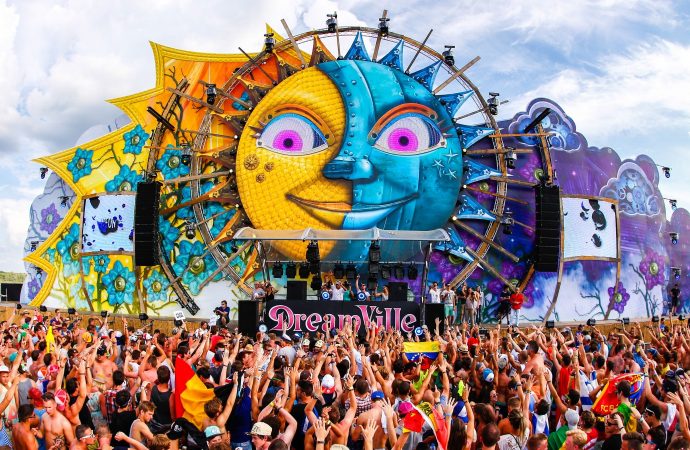The origins of early music festivals can be traced back to ancient civilizations where music played a central role in cultural and religious ceremonies. These early gatherings often featured a blend of music, dance, and theatrical performances, reflecting the diverse artistic expressions of the time. For instance, in ancient Greece, music festivals such as the
The origins of early music festivals can be traced back to ancient civilizations where music played a central role in cultural and religious ceremonies. These early gatherings often featured a blend of music, dance, and theatrical performances, reflecting the diverse artistic expressions of the time. For instance, in ancient Greece, music festivals such as the Pythian Games celebrated both athletic prowess and musical talent, showcasing the integral role of music in society. Similarly, in ancient Rome, festivals like the Ludi Romani included musical performances as part of larger public celebrations, emphasizing the communal and celebratory nature of these events.
The transformation of music festivals in the 20th century marked a significant evolution in how these events were organized and experienced. The rise of popular music genres such as rock, jazz, and later electronic dance music, led to the emergence of large-scale music festivals that attracted diverse audiences. In the 1960s, festivals like Woodstock in the United States epitomized the counterculture movement, bringing together thousands of people in a shared experience of music, peace, and love. This era also saw the professionalization of festival organization, with advancements in sound technology, stage design, and event logistics, setting new standards for future festivals.
Iconic Locations and Venues
Glastonbury, located in the picturesque countryside of England, has established itself as a premier music festival venue. Since its inception in 1970, Glastonbury has grown to become one of the largest and most renowned music festivals in the world. The festival’s sprawling site features multiple stages, each offering a diverse array of musical acts, from rock and pop to electronic and world music. Glastonbury’s unique blend of music, arts, and culture, along with its commitment to environmental sustainability, has made it a beloved institution among festival-goers and artists alike.
Coachella, held annually in the California desert, is another iconic music festival location that has garnered international acclaim. Known for its star-studded lineups and trendsetting fashion, Coachella has become a cultural phenomenon that transcends the music industry. The festival’s stunning setting, with palm trees and mountain vistas, provides a picturesque backdrop for performances by some of the biggest names in music. Coachella’s influence extends beyond music, impacting fashion, art, and social media trends, making it a key player in the global festival scene.
Diverse Musical Genres and Lineups

Image by : Yandex
One of the defining features of global music festivals is their showcase of diverse musical genres. These festivals provide a platform for a wide range of musical styles, from mainstream pop and rock to niche genres like indie, folk, and electronic. This diversity ensures that there is something for everyone, attracting audiences with varied musical tastes. Festivals such as Glastonbury, Coachella, and Tomorrowland are known for their eclectic lineups, featuring artists from different genres and backgrounds, creating a rich tapestry of sound that reflects the global nature of contemporary music.
Lineups featuring top artists from various music genres are a hallmark of major music festivals. These events often boast an impressive roster of performers, including legendary acts, current chart-toppers, and emerging talent. For instance, festivals like Lollapalooza and Bonnaroo consistently attract high-profile artists from across the musical spectrum, offering attendees the opportunity to see their favorite performers and discover new ones. The diverse lineups not only enhance the festival experience but also contribute to the cultural exchange and appreciation of different musical traditions.
Economic and Cultural Impact
Music festivals have a significant economic impact, boosting local economies through tourism and spending. These events attract large numbers of visitors, who contribute to the local economy by spending on accommodation, food, transportation, and other services. The influx of festival-goers provides a substantial revenue stream for local businesses, creating jobs and stimulating economic growth. Additionally, festivals often collaborate with local vendors and artisans, further supporting the community and promoting local culture.
Promoting cultural exchange and global music appreciation is another important aspect of music festivals. By bringing together artists and audiences from different parts of the world, these events foster a sense of global community and cultural understanding. Festivals like WOMAD (World of Music, Arts and Dance) celebrate the diversity of global music, offering a platform for artists from various cultural backgrounds to share their traditions and innovations. This cultural exchange enriches the festival experience, broadening attendees’ musical horizons and promoting a deeper appreciation of global music.
Top Festivals in North America
Exploring premier music festivals across North America reveals a vibrant and diverse festival landscape. From the iconic Coachella in California to the eclectic Bonnaroo in Tennessee, North America is home to some of the world’s most celebrated music festivals. Events like Lollapalooza in Chicago and Austin City Limits in Texas showcase a wide range of musical genres, attracting top artists and large audiences. These festivals are renowned for their high production values, innovative stage designs, and immersive experiences, making them must-attend events for music lovers.
Comparing top North American and worldwide music festivals highlights the unique characteristics and strengths of each. While North American festivals like Coachella and Lollapalooza are known for their star-studded lineups and cultural influence, European festivals such as Glastonbury and Tomorrowland are celebrated for their rich history and diverse musical offerings. Similarly, festivals in Asia, like Fuji Rock in Japan and Sunburn in India, provide unique cultural experiences and attract global audiences. Each festival has its own distinct identity and appeal, contributing to the vibrant and diverse global festival scene.
Top Festivals in Europe
Exploring Europe’s premier music festivals reveals a rich tapestry of events that celebrate the continent’s diverse musical heritage. Glastonbury in the United Kingdom is one of Europe’s most iconic festivals, known for its eclectic lineups and vibrant atmosphere. Other notable festivals include Tomorrowland in Belgium, renowned for its spectacular production and electronic dance music, and Roskilde in Denmark, which features a wide range of genres and a strong focus on social activism. These festivals attract music lovers from around the world, offering unforgettable experiences and showcasing Europe’s rich musical culture.
Top worldwide music festivals in Europe are celebrated for their unique blend of tradition and innovation. Events like Sziget in Hungary, Primavera Sound in Spain, and Rock am Ring in Germany have gained international acclaim for their diverse lineups, high-quality production, and inclusive atmosphere. These festivals not only feature top artists from various genres but also provide platforms for emerging talent, reflecting the dynamic and evolving nature of the European music scene. The combination of historic venues, picturesque settings, and cutting-edge performances makes European music festivals a highlight of the global festival calendar.
Top Festivals in Asia

Image by : Yandex
Asia’s top music festivals attract global audiences, offering a unique blend of cultural experiences and musical performances. Festivals like Fuji Rock in Japan, Clockenflap in Hong Kong, and Sunburn in India have gained international recognition for their diverse lineups and vibrant atmospheres. These events draw music lovers from around the world, providing opportunities to experience both global and local artists in stunning settings. The growing popularity of Asian music festivals reflects the region’s increasing influence in the global music industry and its ability to host world-class events.
Unique cultural experiences at Asia’s music festivals set them apart from their counterparts in other regions. Festivals like Fuji Rock, set in the picturesque mountains of Japan, offer a serene and immersive experience, blending nature with music. In contrast, Sunburn in India combines electronic dance music with the rich cultural heritage of Goa, creating a unique fusion of modern and traditional elements. These festivals not only showcase diverse musical genres but also provide attendees with a deeper understanding of the local culture, making them a memorable and enriching experience.
Future Trends in Music Festivals
The integration of VR in music festivals is an emerging trend that is set to revolutionize the festival experience. Virtual reality technology allows festival-goers to immerse themselves in live performances from the comfort of their homes, providing a new level of accessibility and convenience. VR can also enhance the on-site experience by offering virtual tours, interactive installations, and augmented reality features. As technology continues to advance, the use of VR in music festivals is expected to grow, offering new and innovative ways for audiences to engage with music and performances.
Sustainability initiatives at top worldwide music festivals are becoming increasingly important as the industry recognizes the need to minimize its environmental impact. Festivals like Glastonbury and Bonnaroo have implemented comprehensive sustainability programs, including waste reduction, recycling, and the use of renewable energy sources. These initiatives not only reduce the environmental footprint of festivals but also raise awareness about sustainability issues among attendees. As the global music festival industry continues to grow, the adoption of sustainable practices will be crucial in ensuring the long-term viability and positive impact of these events.
















